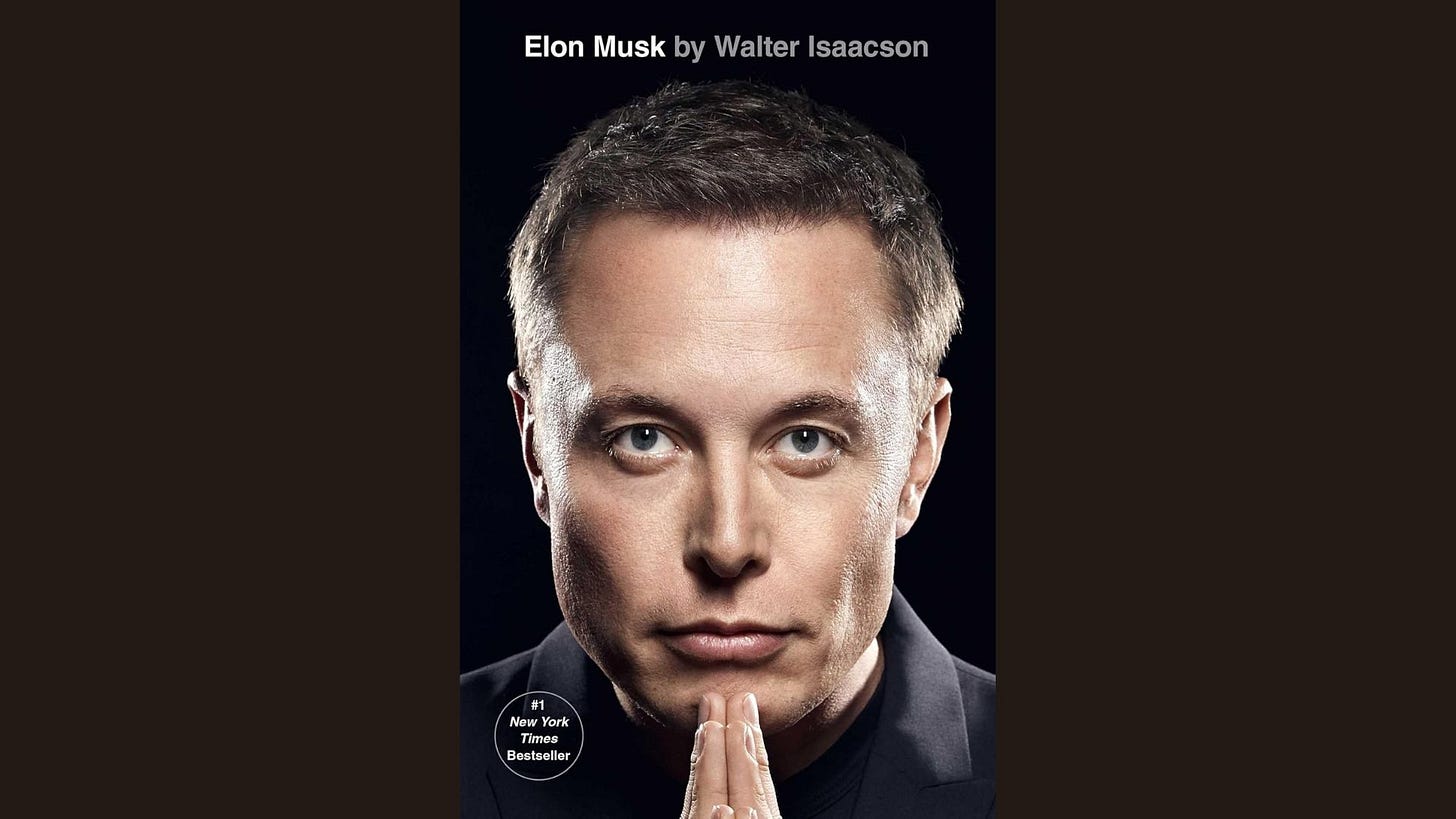Book Byte #365 "Elon Musk" by Walter Isaacson
Journey Through Elon Musk’s Visionary Mind: A Biography
📣 Curious Quotes from the Author
“The family adopted a motto: “Live dangerously—carefully.”
“Question every requirement. Each should come with the name of the person who made it. You should never accept that a requirement came from a department, such as from “the legal department” or “the safety department.” You need to know the name of the real person who made that requirement. Then you should question it, no matter how smart that person is. Requirements from smart people are the most dangerous, because people are less likely to question them. Always do so, even if the requirement came from me. Then make the requirements less dumb. 2. Delete any part or process you can. You may have to add them back later. In fact, if you do not end up adding back at least 10% of them, then you didn’t delete enough. 3. Simplify and optimize. This should come after step two. A common mistake is to simplify and optimize a part or a process that should not exist. 4. Accelerate cycle time. Every process can be speeded up. But only do this after you have followed the first three steps. In the Tesla factory, I mistakenly spent a lot of time accelerating processes that I later realized should have been deleted. 5. Automate. That comes last. The big mistake in Nevada and at Fremont was that I began by trying to automate every step. We should have waited until all the requirements had been questioned, parts and processes deleted, and the bugs were shaken out.”
“The people who are crazy enough to think they can change the world are the ones who do. —Steve Jobs”
“If you were negative or thought something couldn’t be done, you were not invited to the next meeting,” Mueller recalls. “He just wanted people who would make things happen.”
“Physics could teach everything about the universe except why. That led to what he calls his adolescent existential crisis. “I began trying to figure out what the meaning of life and the universe was,” he says. “And I got real depressed about it, like maybe life may have no meaning.”
“Separating the design of a product from its engineering was a recipe for dysfunction. Designers had to feel the immediate pain if something they devised was hard to engineer.”
“The only rules are the ones dictated by the laws of physics. Everything else is a recommendation.”
“Reading remained Musk’s psychological retreat. Sometimes he would immerse himself in books all afternoon and most of the night, nine hours at a stretch.”
Step one should be to question the requirements,” he says. “Make them less wrong and dumb, because all requirements are somewhat wrong and dumb. And then delete, delete, delete.”
“This is how civilizations decline. They quit taking risks.”
“Musk took an iterative approach to design. Rockets and engines would be quickly prototyped, tested, blown up, revised, and tried again, until finally something worked. Move fast, blow things up, repeat. “It’s not how well you avoid problems,” Mueller says. “It’s how fast you figure out what the problem is and fix it.”
“He went to the Palo Alto public library to read about rocket engineering and started calling experts, asking to borrow their old engine manuals. At a gathering of PayPal alumni in Las Vegas, he sat in a cabana by the pool reading a tattered manual for a Russian rocket engine. When one of the alums, Mark Woolway, asked him what he planned to do next, Musk answered, “I’m going to colonize Mars. My mission in life is to make mankind a multiplanetary civilization.” Woolway’s reaction was unsurprising. “Dude, you’re bananas.”
“The important thing with Elon,” he says, “is that if you told him the risks and showed him the engineering data, he would make a quick assessment and let the responsibility shift from your shoulders to his.”
“maniacal sense of urgency is our operating principle,”
📚 Cognition of the Book’s Big Idea
Elon Musk's path remains one of strategic risk-taking and unwavering innovation. Musk has demonstrated a persistent emphasis on finding solutions to difficult problems since his early years in South Africa and his founding of businesses like PayPal, SpaceX, and Tesla Inc. His attempt to influence the digital public square and his dedication to transparency are demonstrated by his 2022 acquisition of Twitter and the release of the Twitter Files. His narrative depicts a man who is motivated to push boundaries and consistently influence the field of technology by the limitless potential of the future.
Until Tomorrow,
Jason (Founder Club255)

